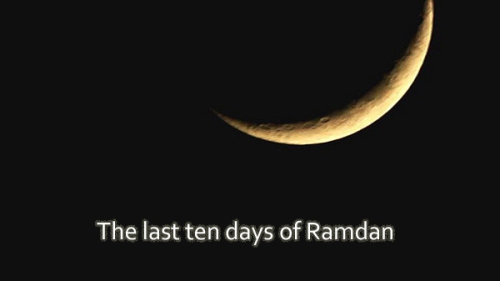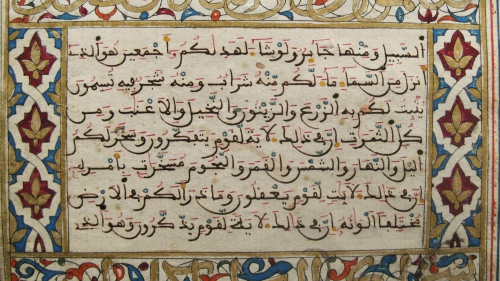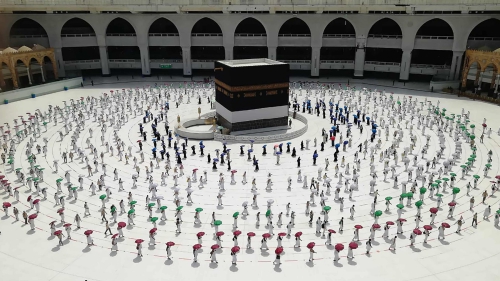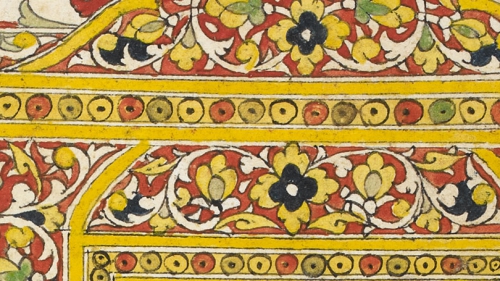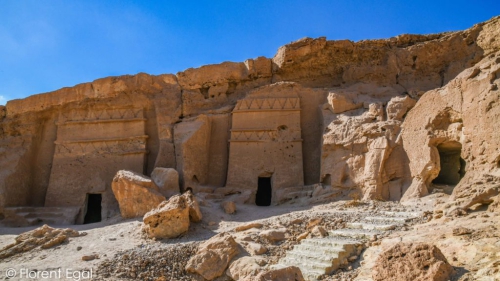A Just Moral System
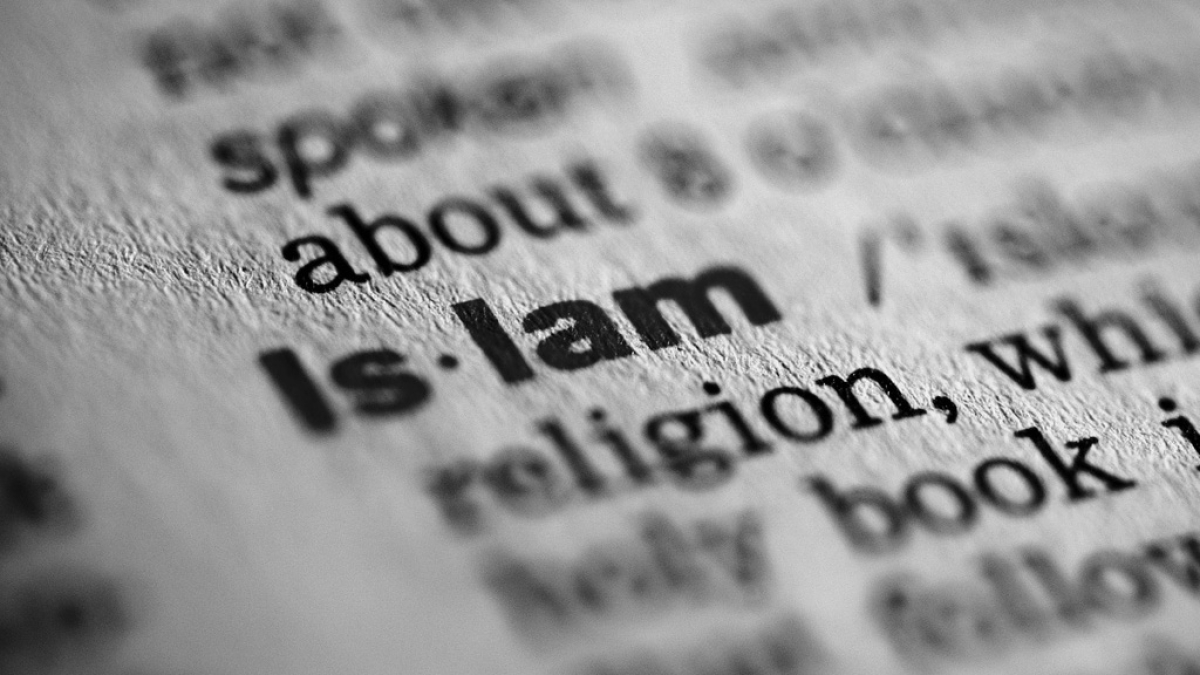
For most people morals are sets of rules that we ought to obey, they tell us what is right or wrong. A quest for morality seeks to discover how these rules are justified, and what is the logical consequences of moral or ethical beliefs.
According to the teachings of the Quran human beings are vice-regents and moral agents of the creator of humanity. Human beings are endowed by their creator with a rational nature and are free to make choices. As rational beings we are able to judge whether any action is moral by asking if the action is consistent with the universal laws on nature.
One can view universal law as an action by a person that is based on an intention whereby at the same time the person wishes that it shall become a universal law. For example if a person wants to know if telling a lie is justifiable, then that person must try to imagine what would happen if everyone was to lie. It is safe to assume that any rational being would agree that a universal law that defines lying as morally unacceptable would be preferable to one in which lying was considered acceptable human behavior. A society in which lying was considered morally acceptable would create chaos and an unstable environment for human interaction.
The natural order created by God has laid down some universal fundamental rights for humanity as a whole, which are to be observed and respected under all circumstances. To achieve these rights Islam provides not only legal safeguards but also an effective moral system. Thus whatever leads to the welfare of the individual or the society is morally good in Islam and whatever is injurious is morally bad. The Quran attaches a significant importance to the love of God and love of man and warns against too much spiritual ritualism. We read in the Quran:
It is not righteousness that you turn your faces towards East or West; but it is righteousness to believe in God and the Last Day and the Angels, and the Book, and the Messengers; to spend of your substance, out of love for Him, for your kin, for orphans for the needy, for the wayfarer, for those who ask; and for the freeing of captives; to be steadfast in prayers, and practice regular charity; to fulfill the contracts which you made; and to be firm and patient in pain (or suffering) and adversity and throughout all periods of panic. Such are the people of truth, the God-conscious." (2:177)
We are given a beautiful description of the righteous and God-conscious human in these verses. Humankind should obey salutary regulations, but the most important issue is to focus on the love of God and the love of humankind.
The principals of moral good laid out for one who submits to the will of God should be a sincerity in faith followed by acts of good deeds - deeds that are rooted in God Consciousness. God does not look at just the action itself but the motivation of the action and God is the ultimate criterion of what is good and right.
This is the standard by which a particular mode of conduct is judged and classified as good or bad. This standard of judgment provides the nucleus around which the whole moral conduct should revolve. Before laying down any moral injunctions Islam seeks to firmly implant in man's heart the conviction that his dealings are with God who sees him at all times and in all places; that he may hide himself from the whole world but not from Him; that he may deceive everyone but cannot deceive God; that he can flee from the clutches of anyone else but not from God.
Thus, by setting God's pleasure as the objective of man's life, Islam has furnished the highest possible standard of morality. This is bound to provide limitless avenues for the moral evolution of humanity. By making Divine revelations as the primary source of knowledge it gives permanence and stability to the moral standards which afford reasonable scope for genuine adjustments, adaptations and innovations, though not for perversions, wild variation, atomistic relativism or moral fluidity. It provides a sanction to morality in the love and fear of God, which will impel man to obey the moral law even without any external pressure. Through belief in God and the Day of Judgment it furnishes a force which enables a person to adopt the moral conduct with earnestness and sincerity, with all the devotion of heart and soul.
It does not, through a false sense of originality and innovation, provide any novel moral virtues nor does it seek to minimize the importance of the well-known moral norms, nor does it give exaggerated importance to some and neglect others without cause. It takes up all the commonly known moral virtues and with a sense of balance and proportion it assigns a suitable place and function to each one of them in the total scheme of life. It widens the scope of man's individual and collective life - his domestic associations, his civic conduct, and his activities in the political, economic, legal, educational, and social realms. It covers his life from home to society, from the dining-table to the battlefield and peace conferences, literally from the cradle to the grave. In short, no sphere of life is exempt from the universal and comprehensive application of the moral principles of Islam. It makes morality reign supreme and ensures that the affairs of life, instead of dominated by selfish desires and petty interests, should be regulated by norms of morality.
It stipulates for man a system of life which is based on all good and is free from all evil. It invokes the people, not only to practice virtue, but also to establish virtue and eradicate vice, to bid good and to forbid wrong. It wants that the verdict of conscience should prevail and virtue must not be subdued to play second fiddle to evil. Those who respond to this call are gathered together into a community and given the name "Muslim". And the singular object underlying the formation of this community is that it should make an organized effort to establish and enforce goodness and suppress and eradicate evil.
Here we furnish some basic moral teachings of Islam for various aspects of a persons life. They cover the broad spectrum of personal moral conduct of a Muslim as well as his social responsibilities.
GOD-CONSCIOUSNESS
The Quran mentions that "God consciousness" is the highest quality of a Muslim (one who submits to God):
"The most honorable among you in the sight of God is the one who is most God-conscious." (49:13)
Humility, modesty, control of passions and desires, truthfulness, integrity, patience, steadfastness, and fulfilling one's promises are moral values which are emphasized again and again in the Quran. We read in the Quran:
"And God loves those who are firm and steadfast." (3:146)
"And vie with one another to attain to your Sustainer's forgiveness and to a Paradise as vast as the heavens and the earth, which awaits the God-conscious, who spend for charity in time of plenty and in time of hardship, and restrain their anger, and pardon their fellow men, for God loves those who do good." (3:133-134)
"Establish regular prayer, enjoin what is just, and forbid what is wrong; and bear patiently whatever may befall you; for this is true constancy. And do not swell your cheek (with pride) at men, nor walk in insolence on the earth, for God does not love any man proud and boastful. And be moderate in your pace and lower your voice; for the harshest of sounds, indeed, is the braying of the ass." (31:18-19)
In a way which summarizes the moral behavior of a Muslim, the Prophet said:
"My Sustainer has given me nine commands: to remain conscious of God, whether in private or in public; to speak justly, whether angry or pleased; to show moderation both when poor and when rich, to reunite friendship with those who have broken off with me; to give to him who refuses me; that my silence should be occupied with thought; that my looking should be an admonition; and that I should command what is right."
SOCIAL RESPONSIBILITIES
The teachings of Islam concerning social responsibilities are based on kindness and consideration of others. Since a broad injunction to be kind is likely to be ignored in specific situations, Islam lays emphasis on specific acts of kindness and defines the responsibilities and rights of various relationships. In a widening circle of relationship, then, our first obligation is to our immediate family - parents, husband or wife and children, then to other relatives, neighbors, friends and acquaintances, orphans and widows, the needy of the community, our fellow Muslims, all our fellow human beings and animals.
Parents:
Respect and care for parents is very much stressed in the Islamic teaching and is a very important part of a Muslim's expression of faith.
"Your Sustainer has decreed that you worship none but Him, and that you be kind to parents. Whether one or both of them attain old age in your lifetime, do not say to them a word of contempt nor repel them, but address them in terms of honor. And, out of kindness, lower to them the wing of humility and say: My Sustainer! Bestow on them Your mercy, even as they cherished me in childhood." (17:23-24)
Other Relatives:
"And render to the relatives their due rights, as (also) to those in need, and to the traveler; and do not squander your wealth in the manner of a spendthrift." (17:26)
Neighbors:
The Prophet
has said:
"He is not a believer who eats his fill when his neighbor beside him is hungry"; and: "He does not believe whose neighbors are not safe from his injurious conduct."
Humanity and Environment:
According to the Quran and Sunnah, a Muslim has to discharge his moral responsibility not only to his parents, relatives and neighbors but to the entire mankind, animals and trees and plants. For example, hunting of birds and animals for the sake of game is not permitted. Similarly, cutting trees and plants which yield fruit is forbidden unless there is a very pressing need for it.
SECULARISM IN ISLAM
The TRUTH that the Quran speaks of is the law that controls everything in the Universe responsible for the creation of everything existing in it and their continuity. The Quran says that the entire Universe has been made on the principle of Truth. Truth is not a parochial expression because of its legality over the entire Universe. It is very much secular because it controls constellations, the Solar system, the Earth and all beings in it. It controls animals and birds, and we human beings inherently belong to it.
Secularism in Islam may sound like an oxymoron but if we define a secular system as a system that is 'religion blind' or a system that accepts religious diversity then the following verses of the Quran show the wisdom that is being communicated to humankind by it's Creator.
Diversity of Humanity:
O humankind! We created you from a single (pair) of a male and a female, and made you into nations and tribes, that you may know each other (not that you may despise (each other). Verily the most honored of you in the sight of God is (he who is) the most righteous of you. And God has full knowledge and is well acquainted (with all things). - Quran 49:13No coercion in religion:
Let there be no compulsion in the way of life.. - Quran 2:256Acceptance of plurality:
If thy Lord had so willed, He could have made Humankind one people: but they will not cease to dispute. Quran 11:118Say (Muhammad), to those who do not believe - I do not worship that which you worship - Nor do you worship that which I worship. And I shall Not worship that which you worship - Nor will you worship that which I worship - To you be your religion, and to me mine. Quran 109:1-6
The above Quranic directive establishes the ground rules for a system that recognizes religious diversity. The moral system of Islam dictates that we cannot force Religion on anyone but it is our responsibility to be a witness to the ultimate truth and communicate and share the knowledge of the Quran with humanity. The ultimate truth according to the Quran is the Divine natural order of submission to the One creator of humanity and the universe.
Thus, on the basic moral characteristics, Islam builds a higher system of morality by virtue of which mankind can realize its greatest potential. Islam purifies the soul from self-seeking egotism, tyranny, wantonness and indiscipline. It creates God-conscious men, devoted to their ideals, possessed of piety, abstinence and discipline and uncompromising with falsehood, It induces feelings of moral responsibility and fosters the capacity for self control. Islam generates kindness, generosity, mercy, sympathy, peace, disinterested goodwill, scrupulous fairness and truthfulness towards all creation in all situations. It nourishes noble qualities from which only good may be expected.
Adapted from: III&E (Institute of Islamic Information and Education) Publication Series; No. 6
Topics: Worship (Ibadah)
Views: 4582
Related Suggestions
In any event, what Kant, the consequentualist philosophers, and a host of modern thinkers have shown is that morality needs no support from religion, reason alone is sufficient.
I am grateful to Allah (Subhanhu Wa Ta'ala) that a fellow revert had showed me, fairly recently, the importance of verifying what fancy sounding words means - even those belonging to my first language - before using such words within discussions on Allah's message or concerning Allah's messengers (peace be upon them). As a simple revert still unable to converse in Arabic (what I myself regard as a convert), I feel that "abrogated" sounds just too similar to "contradicted" to feel comfortable about its use within attempts to explain, in English, how one part of the Quran should to be applied to another part of the Quran.
Oh, Allah, you are incomparable - having no equal or partner. Peace be upon Prophet Mohammad - please bless him, Allah, and please deliver to him our salutations of peace.
As Salaamu Alaikum.
(Jazak Allahu Khair!) I intend to print your article - for further study (Insha'Allah).
Shuja Syed
jazakoom allahoo khayran, I liked the article so much, I didnt reach the level of knowledge to give better comments! may allah soubhanahoo wa t3ala help you and guide you!
The first few paragraphes could easily be refering to Judaism or Christiam morality.
The essence of the verses quoted from the Quran have parallel teachings in the Hebrew Torah as well as the Christian New Testament.
We all have our cultural biases and false teachings of the "book" at the expense of the other two faiths. We all have the extreme groups promoting division and hatred against each other. We all have the conviction that the traditions that have been formed over the last two thousand years is acceptable to God and what we are doing is pleasing to God. The teaching today wheither one is Jewish, Arab, or any other nationality is not God centered but religious-tradition centered. Each faith is looking for converts as the only way, but as a Christian who is just starting to inquire and learn about Islam and Judaism I am rethinking what I have been taught. Equally, I am aware that Judaism and Islam as religions are not the only way to God since the the flawed perspective in Christianity as taught in the west are evident in Islam and Judaism as well. I will no longer be surprised when the day comes that I will be in Glory with Jews and Muslims.
that was a wonderful article, masha'ALLAH.
Jazakum ALLAH khair.
i very much enjoy your website, it is very infomative and a good reminder. again jazakum ALLAH khair for you good work and effort.
wasalaam
It is funny that I bring to you the statements of Ibn Katheer and At-Tabari-2 of the greatest scholars of tafseer, who based their analyses on the statement of Ibn Abbas (ra) who was called by the COMPANIONS "THE COMMENTATOR OF THE QUR'AN". You bring me tafseer of Amin. You are fully entitled to your opinion and it does not change the fact that I love you for the pleasure of Allah. Also if you do not believe in abrogation of ayat then drinking khamr is only (makrooh) disliked, and Ka'b ibn Malik was never pardoned for not going to Jihad of Tabuk.
As I stated Christians commit Shirk and in the Qur'an Eesa distances himself from the Shirk they practice. You yourself admits that their religion is based on misconceptions and exagerations. Jews have rejected Prophets and attempted to kill them, and have, since the time of Muhammad (saws) has shown contempt for Islam and tried to eradicate it. They both deny all 5 pillars of Islam, and maybe believe in 1 or 2 of the pillars of Faith. How can there actions be pleasing to Allah? May Allah guide us all and not allow these petty differences come between establishing the Kalimatul Haqq. Aameen.
As Salaamu Alaikum.
I feel that efforts to try and tell people what being a Muslim is about is the best possible defense against ignorance and bigotry. Islamicity is a great format for expressing opinions. I find it very disturbing to read and listen to statements that are hateful, uninformed, and bigoted. They are written by people from ALL countries and religions. On the other hand, I read articles and comments that show me that there is hope that we can settle our differences. The One World, One People logo is great. Can someone tell me if that is an organization, and if so - how to get in touch with them?
The above mentioned verses were meant for those who still refused to listen after all the futile efforts of the Prophet and the Muslims.
To me they also mean that we should use all effirts and resources to teach, humans can only do or try so much and then the ultimate destiny is up to God. History shows that God did change people for the better, who initially refused to even listen to the Prophet.
other veses were sent in context of the situation at that time, for example when the Muslims were told be wary of and defend themselves from their persecutors, would-be murderers, spies, traitors etc. in a time when they were under attack.
However even in these trying circumstances, Muslims were ordered to only kill their enemy in defense, not to kill out of anger only for Islam, not to take any personal revenge, not to kill or harm any women, children or the elderly,
not to uproot trees and plants or damage water supplies, not to kill or injure animals and to treat POWs with respect, in addition to many other conditions.
It is obvious that many Muslims have strayed from these basic rules of Islam.
In fact the Prophet married a former prisoner of war as an example to others that any prisoners taken in a war should be freed, treated as equals and elevated to the status of the local people if they wish to stay.
After a grat deal of studying and many, many questions, so far I have found the Quran and hadeeth to be full of wisdom and reason.
wasalaam
This attitude is an innovation over the prophet and is morally disguting.
The article is very good, pointing out that moral law doesn't simply exist as a few to get to God but as a prooven system based on logic and natural law. It is not arbitrarily arrived at.






